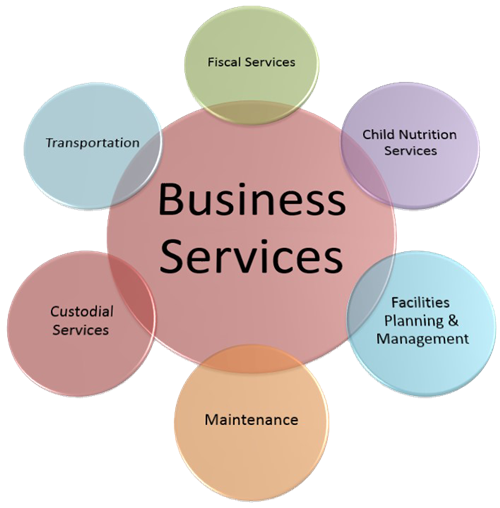Business Opportunities in Nigeria
Business Opportunities in Nigeria is endless because Nigeria is the largest economy in Africa with a GDP of $448.1 billion in 2019, according to the World Bank. The country is endowed with vast natural resources such as oil, natural gas, solid minerals, and agriculture. However, the economy has been heavily dependent on oil, which accounts for over 90% of the country’s exports and 60% of government revenue.
Despite this heavy dependence on oil, Nigeria has a diverse range of sectors that offer potential investment Business opportunities in Nigeria. Here are some of the sectors with facts and figures:
- Agriculture: Agriculture is the largest employer in Nigeria, providing employment for over 70% of the population. The sector contributed 24.77% to the country’s GDP in 2020. Nigeria is the largest producer of cassava, yams, and cowpeas in the world, and the 3rd largest producer of cocoa. There are opportunities for investment in mechanized farming, agro-processing, and the export of agricultural products.
- Manufacturing: The manufacturing sector contributes about 8.4% to Nigeria’s GDP. The sector has shown steady growth in recent years, and there is a growing demand for locally manufactured goods such as textiles, cement, and household appliances. Nigeria’s automotive industry has also shown potential, with several international companies setting up assembly plants in the country.
- Real estate: Nigeria’s population is growing at a rate of 2.6% per year, leading to a high demand for housing. The country has a housing deficit of over 17 million units, providing opportunities for investment in the construction and sale of houses, commercial buildings, and infrastructure development.
- Information technology: The information technology sector is one of the fastest-growing sectors in Nigeria, with a growth rate of over 14% in 2020. The sector contributed about 15.2% to Nigeria’s GDP in 2020. Nigeria’s e-commerce industry is also growing, with several successful startups in the sector. Palmacedar Limited is a leading ICT and digital services company in Nigeria.
- Energy: Nigeria is the largest oil producer in Africa and has significant natural gas reserves. However, the country is also making efforts to diversify its energy mix by developing renewable energy sources such as solar, wind, and hydroelectric power. Nigeria aims to generate 30% of its electricity from renewable energy sources by 2030.
- Education: Nigeria has a large youth population, with over 60% of the population under the age of 25. There is a growing demand for quality education, leading to opportunities for investment in the development of educational institutions such as universities, vocational schools, and e-learning platforms.
- Healthcare: Nigeria has a growing population and a need for quality healthcare services. The country spends about 3.7% of its GDP on healthcare, and there are opportunities for investment in the development of hospitals, clinics, and the provision of medical equipment and supplies.
- Professional Services : This is an untapped sector with massive opportunities. Some organization such as maclor clean, Palmacedar Cleaning Limited, so-kleen and so are making wave in this business space
Nigeria offers numerous business opportunities in various sectors, with a large and growing population, abundant natural resources, and a business-friendly regulatory environment. However, investing in Nigeria requires careful research, due diligence, and an understanding of the country’s unique challenges and opportunities.
Small and Medium-sized Enterprises (SMEs) Growth in Nigeria
Small and Medium-sized Enterprises (SMEs) are a crucial part of Nigeria’s economy, accounting for about 48% of the country’s GDP and providing employment for over 60 million people, according to the Small and Medium Enterprises Development Agency of Nigeria (SMEDAN). Here’s an analysis of SME growth in Nigeria with facts and figures:
- Access to Finance: Access to finance is one of the major challenges facing SMEs in Nigeria. In 2020, only 9.7% of SMEs had access to credit from financial institutions, according to a survey by the National Bureau of Statistics (NBS). The Central Bank of Nigeria (CBN) has implemented several initiatives to increase access to finance for SMEs, including the creation of the NIRSAL Microfinance Bank and the establishment of the Entrepreneurship Development Centers (EDCs).
- Digitalization: The COVID-19 pandemic accelerated the adoption of digital technology by SMEs in Nigeria. In 2020, about 36% of SMEs in Nigeria had an online presence, according to a survey by Mastercard. The adoption of digital technology has enabled SMEs to access new markets, increase efficiency, and reduce costs.
- Government Support: The Nigerian government has implemented several initiatives to support SME growth, including the establishment of SMEDAN and the National Enterprise Development Programme (NEDEP). The government has also implemented policies to promote local content and provide tax incentives for SMEs.
- Market Opportunities: Nigeria has a large consumer market, with a population of over 200 million people. The country also has a growing middle class and a high demand for goods and services. SMEs in Nigeria can tap into these market opportunities by providing innovative products and services.
- Business Environment: The business environment in Nigeria has been challenging for SMEs, with issues such as corruption, insecurity, and inadequate infrastructure. However, the Nigerian government has implemented several reforms to improve the business environment, including the ease of doing business reforms and the implementation of the National Quality Infrastructure Project.
- Export Opportunities: Nigeria is a member of the African Continental Free Trade Area (AfCFTA), providing SMEs with access to a market of over 1.2 billion people. The AfCFTA is expected to boost intra-African trade and create new export opportunities for SMEs in Nigeria.
SMEs are a critical component of Nigeria’s economy, and there are numerous opportunities for their growth. However, SMEs face challenges such as access to finance, inadequate infrastructure, and a challenging business environment. The Nigerian government has implemented several initiatives to support SME growth, and SMEs can tap into market opportunities by providing innovative products and services and adopting digital technology.
Hurdles of business opportunities in Nigeria
As an entrepreneur in Nigeria, be ready to seize the endless business opportunities of the bustling economy. You’ve got your business plan, your funding, and your team all set to go. But wait, what’s that? A wild hurdle appears! Let’s take a closer look at some of the hurdles you might face:
- Poor Infrastructure: It’s like trying to build a house on a foundation of quicksand. Nigeria’s infrastructure is often inadequate, particularly when it comes to power supply, transportation, and communication. For example, the country’s electricity supply is one of the lowest in the world, with only 60% of the population having access to electricity.
- Access to Finance: It’s like trying to play football without a ball. Access to finance is a major challenge for businesses in Nigeria, particularly for small and medium-sized enterprises (SMEs). Only 10% of SMEs have access to credit from financial institutions, according to a survey by the National Bureau of Statistics (NBS).
- Bureaucracy and Corruption: It’s like trying to run a marathon with a ball and chain attached to your ankle. The Nigerian bureaucracy can be complex and slow-moving, which can make it difficult for businesses to navigate regulations and procedures. Corruption is also a significant issue in Nigeria and can increase the cost of doing business.
- Insecurity: It’s like trying to run a business in a haunted house. Insecurity is a major challenge in Nigeria, particularly in the northern and eastern regions of the country. This can affect businesses’ ability to operate safely and can also deter foreign investment.
- Poor Education and Skills: It’s like trying to teach a fish to climb a tree. Nigeria’s education system is often criticized for producing graduates who lack the skills and knowledge needed in the workforce. This can make it difficult for businesses to find qualified employees.
- Unreliable Legal System: It’s like trying to win a race with a broken leg. Nigeria’s legal system is often slow-moving and can be unreliable, particularly in commercial disputes. This can make it difficult for businesses to protect their intellectual property or resolve disputes.
- Market Saturation: It’s like trying to sell ice to an Eskimo. Some sectors in Nigeria are becoming saturated with businesses, which can make it difficult for new businesses to enter and compete.
While there are numerous business opportunities in Nigeria, entrepreneurs may face a variety of hurdles, including poor infrastructure, limited access to finance, bureaucracy, corruption, insecurity, poor education and skills, an unreliable legal system, and market saturation. But with a little creativity and a lot of determination, these hurdles can be overcome, and entrepreneurs can thrive in Nigeria’s dynamic economy.
Crossing the Business Opportunities Hurdles in Nigeria.
While there are hurdles to doing business in Nigeria, there are also ways to cross these hurdles and succeed. Here are some strategies that entrepreneurs can use to overcome the challenges of business opportunities in Nigeria:
- Build Strong Networks: Building strong networks can help entrepreneurs navigate the bureaucracy and corruption that can be prevalent in Nigeria. Networking with other entrepreneurs, government officials, and business associations can provide valuable information and support.
- Invest in Infrastructure: Investing in infrastructure can help businesses overcome the poor infrastructure that can be a challenge in Nigeria. For example, businesses can invest in alternative power sources such as solar or generators to ensure a stable power supply.
- Seek Alternative Funding Sources: Entrepreneurs can seek alternative funding sources such as crowdfunding, angel investors, or microfinance institutions to overcome limited access to finance. The Nigerian government has also set up several funds to support SMEs, such as the Bank of Industry SME Fund and the Development Bank of Nigeria.
- Embrace Technology: Technology can help businesses overcome some of the challenges of doing business in Nigeria. For example, e-commerce platforms can help businesses reach a wider audience, while digital payment systems can help overcome the limitations of traditional banking.
- Build a Skilled Workforce: Businesses can invest in building a skilled workforce by providing training and development opportunities for their employees. This can help overcome the challenge of poor education and skills in Nigeria.
- Protect Intellectual Property: Entrepreneurs can protect their intellectual property by registering their trademarks, patents, and copyrights with the Nigerian government. This can help overcome the challenge of an unreliable legal system.
- Focus on Niche Markets: Focusing on niche markets can help businesses overcome the challenge of market saturation in Nigeria. By identifying underserved or unexplored markets, entrepreneurs can find new opportunities for growth and success. For cleaning business you can read more on how to start a cleaning business in Nigeria
In conclusion, while there are challenges to doing business in Nigeria, entrepreneurs can overcome these hurdles by building strong networks, investing in infrastructure, seeking alternative funding sources, embracing technology, building a skilled workforce, protecting intellectual property, and focusing on niche markets. By using these strategies, entrepreneurs can thrive in Nigeria’s dynamic and rapidly growing economy.
Visit our blog regularly for more articles like – Business Opportunities in Nigeria




